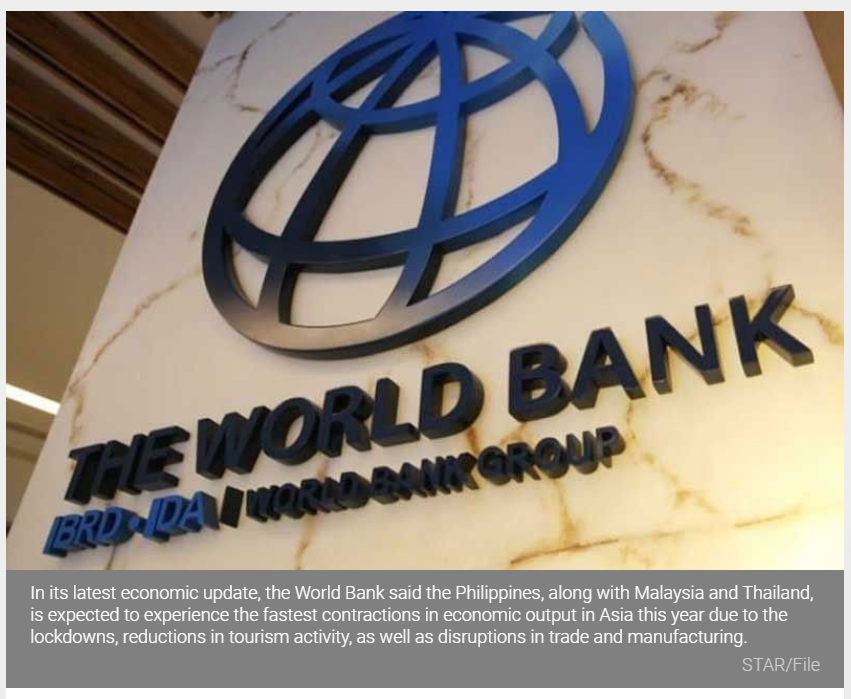World Bank sees Philippine economy contracting by 1.9%
MANILA, Philippines — The World Bank expects the Philippine economy to contract by 1.9 percent this year, reflecting the disruptions caused by the coronavirus pandemic as well as multiple economic shocks in the beginning of the year.
This will be the first annual contraction for the economy since the Asian financial crisis when the economy shrank by 0.5 percent.
In its latest economic update, the World Bank said the Philippines, along with Malaysia and Thailand, is expected to experience the fastest contractions in economic output in Asia this year due to the lockdowns, reductions in tourism activity, as well as disruptions in trade and manufacturing.
“Part of the reason is that the Philippines is one of the first to impose a very strict community quarantine, which shut down the economy for almost two months. Other countries are not doing that,” said World Bank senior economist Rong Qian during a virtual briefing yesterday.
This, she said, contrasted with the approach of other countries like Vietnam that did not enforce severe lockdowns, but placed more importance on contact tracing and mass testing.
She also said that even before the declaration of the pandemic, the Philippines was rattled by several shocks including the eruption of Taal Volcano, which affected a major industrial region in the country, as well as the decline in tourism in February as a result of travel bans imposed worldwide to control the transmission of the virus.
Qian said that the cumulative impact of these events on the economy has been broad-based and deep, halting investment activity and leading to the lowest consumption growth in three decades.
“Those already had an impact on the economy before COVID,” she said.
Following a contraction of 0.2 percent in the gross domestic product (GDP) in the first quarter, , Qian said a deeper economic decline may happen in the second quarter that would likely continue into the third quarter before a “muted growth” in the fourth quarter is realized.
These projections are rooted in assumption that restrictions in mobility are gradually relaxed in the second half.
As the economy eases into the so-called “new normal”, economic growth may recover to 6.2 percent in 2021 as consumption and investment recovers.
Increased economic activity surrounding the national elections in 2022, meanwhile, would boost economic growth by 7.2 percent in 2022, the World Bank said.
Qin also noted that the downside risks to the projections are “elevated” as recovery would still largely depends on how the government can contain the transmission and provision of effective social protection policies.
As these uncertainties weigh heavily on the growth outlook, lower than projected rates may be realized.
Qian, said supportive policies would be crucial for economic recovery under the new normal, especially on improving digital infrastructure to help ensure the continuity of businesses and provide more affordable internet service to the public.
“Measures that restrict mobility, regulate physical contact, and limit business activity have forced more businesses and families to use the internet for transactions,” she said.
Source: https://www.philstar.com/business/2020/06/10/2019779/world-bank-sees-philippine-economy-contracting-19


 Thailand
Thailand




